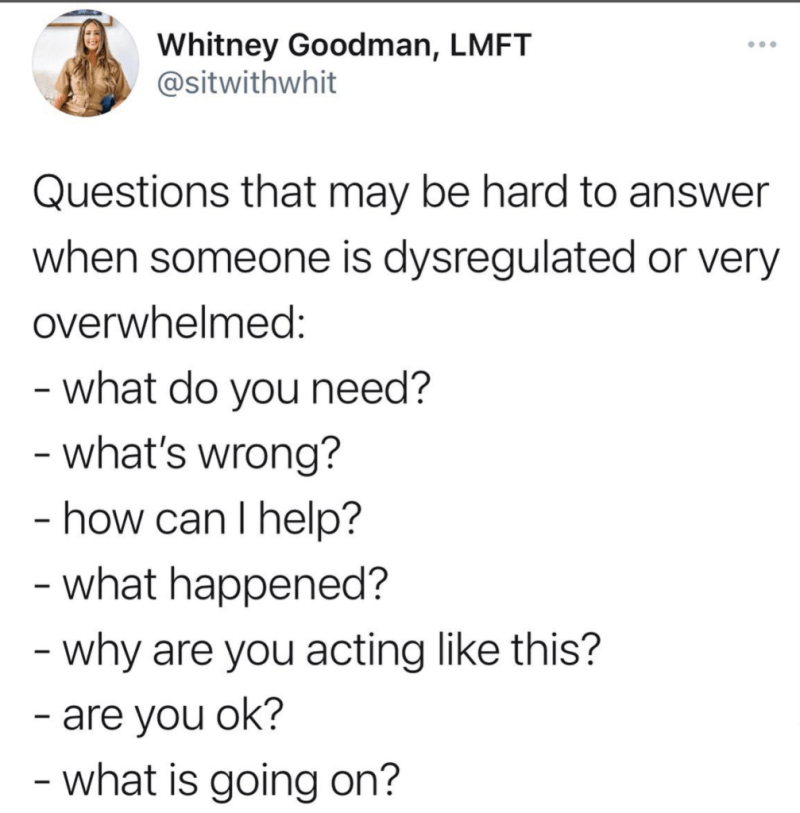What Do You Say When Someone Is Having Surgery – I think I know a little something about you. You are a person who cares for others. You really want to help. You value relationships. However, you still sometimes say the wrong thing yourself. yes? Me too.
As I was eating breakfast this morning, I thought about a conversation I had with a friend years ago. She opened up to me about the struggle, the soft spot in her heart, and I saw my role as fixing it.
What Do You Say When Someone Is Having Surgery

So I used phrases like “You should…” and “I think you should…”. When I put an English muffin in the toaster, I wished there was a time machine instead. I will go back and repeat that time with my friend; I’ve learned a few things since then.
What To Say To Someone Who Lost A Loved One And Is Grieving
Struggles and is in a soft spot. So now, more than ever, we need to know how to be kind to one another. Some of it, of course, is expressed in our work. But our words are also important.
What do we say when someone cares about us? Perhaps more importantly, what we do
A printable guide based on my work as a consultant, life coach, and fellow who has said a lot of things he wants to give back.
Click here for a free 8.5×11 download of the Say This, Not That list. When you enter your email address, you will receive the PDF instantly.
What To Do And Say To A Grieving Mother On Mother’s Day
“Words of the wise bring healing” (Prov. 12:18). As I said before, you are someone who cares about others. You really want to help. You value relationships.
What other phrases would you add to the list I made? Drop me a note and let me know!
I love people, words and good coffee. And I want to help you overcome what’s holding you back, become what you were created to be, and strike for the greater good.

This website uses cookies to improve your experience. We’ll assume you’re fine with that, but you can opt out if you want. ACCEPT cookie settings
Best Things To Say To Someone Grieving A Parent
This website uses cookies to improve your experience while browsing the website. Of these cookies, cookies that are categorized as necessary are stored in your browser because they are essential for the operation of the main functions of the website. We also use third-party cookies that help us analyze and understand how you use this website. These cookies are stored in your browser only with your consent. You also have the option to opt out of these cookies. However, opting out of some of these cookies may affect your browsing experience.
Necessary cookies are absolutely essential for the website to function properly. This group only includes cookies that provide basic functionality and security features of the website. These cookies do not store any personal information.
Any cookies that are not specifically necessary for the operation of the website and are specifically used to collect the user’s personal data through analytics, advertisements and other embedded content are called non-necessary cookies. It is mandatory to obtain user consent before running these cookies on your website. It can be really hard to see someone struggling with anxiety and panic attacks. It is normal to not know what to do in those moments. And it can be even more difficult when it happens in public. But here’s the good news: There are many things you can do to help someone dealing with an attack.
Unfortunately, many people often do not fully understand what anxiety is. Because the symptoms of anxiety disorders are not always visible, it is easy for others to think that a person is exaggerating or making it up.
What To Say To Someone Who Has Cancer
But it’s important to recognize that these experiences are very common. And knowing how to support someone during these episodes can make a significant difference in their well-being.
Whether it happens at home or in the community, knowing what to do (and what not to do) can help you provide them with compassionate care.
Some people use the terms “panic attack” and “anxiety attack” interchangeably, but they are not the same thing. They have similar symptoms, such as dizziness, shortness of breath, and a fast heart rate.

But anxiety and panic have different characteristics, and mental health professionals use these terms for specific disorders and symptoms. The term “anxiety attack” is not defined in the DSM-5, and “anxiety” is often used to describe a core feature of several conditions defined under the headings of anxiety disorders. It is also important to know the difference between a panic attack and a heart attack.
What To Say To Someone With Cancer
So what is the difference between an anxiety attack and a panic attack? We can describe it by the severity of the symptoms and the length of time the main symptoms appear.
When someone is having a panic or anxiety attack, it’s natural to want immediate support. But knowing the right steps to take can make all the difference.
It’s normal to feel scared and sad when you’re supporting someone during a panic or anxiety attack. However, your ability to remain calm is essential in securing their support. By remaining calm, you provide a stable anchor amidst the storm of emotions they are experiencing.
By taking care of your own well-being and maintaining a sense of calm, you can create a safe and supportive environment for someone as you navigate their anxiety or panic attacks together.
What Not To Say To Someone Who Is Having A Health Crisis
When someone is experiencing anxiety or a panic attack, it is natural to ask if they are okay. But it’s important to be mindful of the impact of our words and the speed with which we ask questions.
Can add pressure and obligate them to overcome their anxiety quickly. Instead, let empathy guide your interactions, making sure your words and actions come from a place of understanding and compassion.
But you also need to be prepared that their ability to interpret and react may suffer due to their overwhelming emotions. And that’s good! Pace your questions to their emotional state and allow them to respond when they are ready.

When supporting someone during an anxiety and panic attack, it’s important to pay attention to nonverbal cues—they can provide valuable insight into what actions are comforting to them.
Things You Shouldn’t Say To Someone With Ibs
Observe their position and movements. Are they tense and rigid or more relaxed? Do they seem restless or angry?
Adjust your actions based on their body language. For example, offering a gentle touch or a comforting hug can provide reassurance if they are open to physical contact.
Touching someone during a panic attack should be handled with care and respect for their personal boundaries. While physical touch can be comforting for some, it can be distressing or arousing for others, especially during times of extreme anxiety.
If you’re not sure if touch is helpful or appropriate, it’s best to ask the person if they prefer comforting touch or space.
Girl Has A Mind
Pay attention to their facial expressions. Are they showing signs of fear, anxiety or discomfort? Or do you relax their facial muscles a bit?
If their expression shows tension, consider using calming and soothing techniques, such as speaking softly or making gentle, reassuring gestures.
Notice the rate and depth of their breathing. Rapid and shallow breathing is common during anxiety or panic attacks. Encourage them to breathe slowly and deeply and consider joining breathing exercises to regulate their breathing.

Pay attention to their eye contact, or lack of it. Some people may avoid eye contact during times of anxiety. Respect their preference and offer support without direct eye contact and allow them to feel at ease.
What To Say To Someone Who Had A Miscarriage + 8 Things Not To Say
Although this tip focuses on non-verbal cues, be attentive to any verbal cues they may be giving. Listen to what they say, their tone of voice, and their overall message. Acknowledge their feelings and experiences, provide validation and understanding.
Of course, each person’s nonverbal cues can be different, so it’s important to match each individual’s unique responses. That way, you can customize your actions and support them in the way they need.
Validating someone’s feelings is a powerful way to provide support and understanding during a panic or anxiety attack. It’s not about solving their problems or offering a quick fix. It’s about empathizing with their emotional experience and accepting their feelings as real and important, without judgment or dismissiveness.
During a severe anxiety or panic attack, the experience can feel surreal, as if the person is disconnected from their body or the present moment. Fear and irrational thoughts can make them forget where they are and what is happening around them.
How To Support Someone With Cancer Emotionally And Mentally
Grounding techniques work by engaging the senses and focusing attention on the immediate environment. They help create a bridge between sad thoughts and the reality of the present moment.
For example, a simple grounding technique involves physical touch. Encouraging a person to touch a physical object, such as a chair or a wall, can trigger their senses and bring them back to the present reality.
Knowing what not to do when someone is having a panic/anxiety attack is just as important as knowing how to help.

Despite our best intentions, of course
Mom Has Cancer Things Not To Say
What do you say to someone having a panic attack, what to say when someone is having anxiety, words to say to someone having surgery, what to say when someone is having a panic attack, what to say when someone is having an anxiety attack, what do you say when someone has surgery, what to say when someone is having a mental breakdown, what do you say to someone who is having surgery, someone having surgery what to say, what to say to someone having surgery for cancer, what to say when someone is having surgery, what to say when someone having surgery






